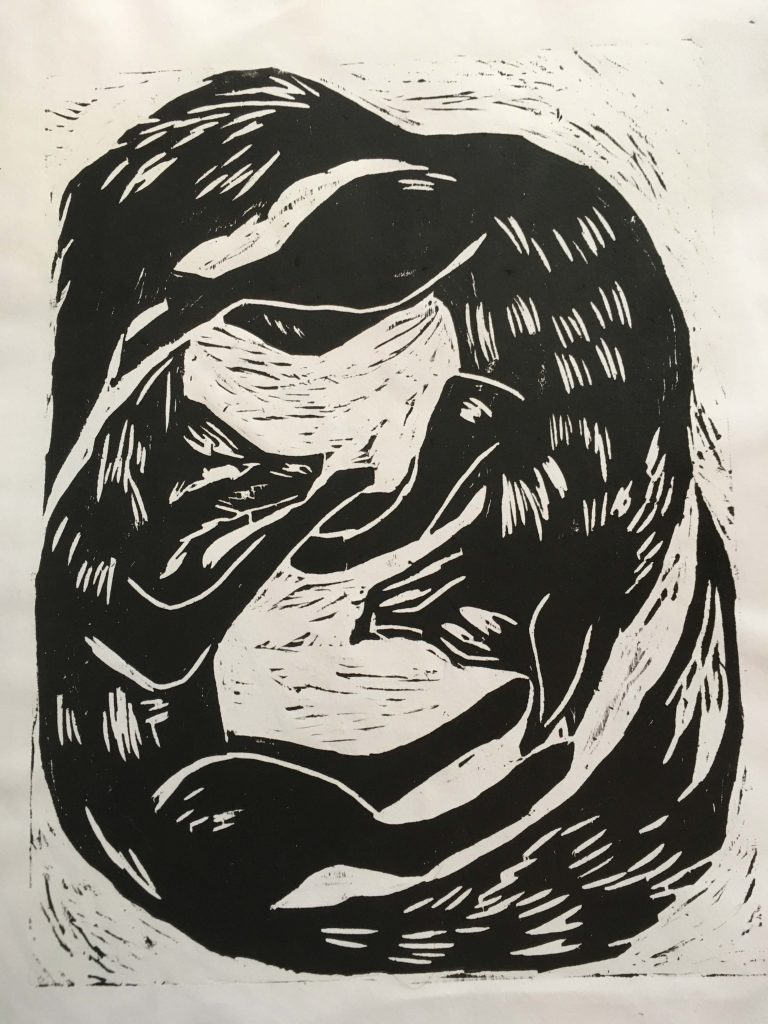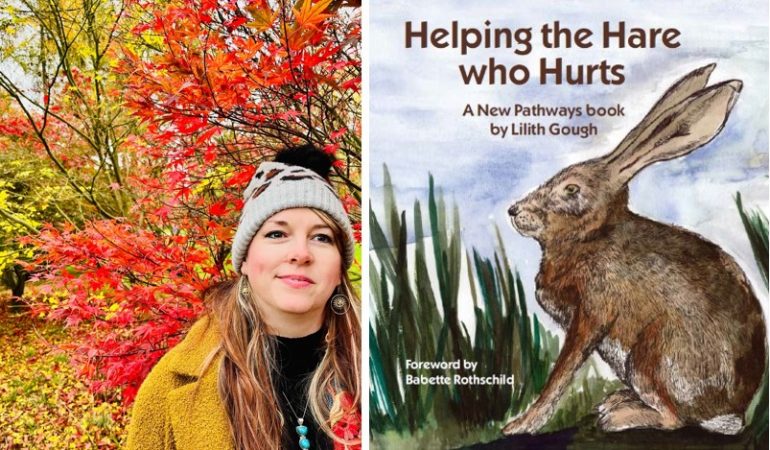Woodland inspired tale aims to teach the very young how to deal with their experiences
EVERY primary school and library in Cardiff is being given a copy of an illustrated storybook written to help children overcome trauma.
Helping The Hare Who Hurts, which is aimed at four to 12-year-olds, follows Hare as the character meets different animal friends. Each one teaches Hare a different stabilising technique to help them feel calm and safe.
The book was created by art psychotherapist Lilith Gough while she was working for New Pathways, a charity which helps support people affected by sexual abuse.
“I just felt lucky to have the opportunity to make the book,” said the mother of one.
“Now it’s being given freely to primary schools, which is brilliant. That’s exactly why we created it.”
The books, which will be given to 98 schools and 20 libraries, have been paid for by Cardiff Council with donations received as part of its campaign involving White Ribbon, a charity looking to end male violence against women and girls.
Some schools and libraries have already received a copy and the rest will get theirs after the half-term break.
Cabinet Member for Childen’s Social Services, Councillor Ash Lister, said: “This book is a brilliant resource to help children to understand their feelings and know there is a way forward for them, but most importantly that they are not alone.”
The council’s White Ribbon Ambassador and Cabinet Member for Finance, Performance and Modernisation, Councillor Chris Weaver said: “What an excellent way to use the funds raised during White Ribbon activities. I am sure that schools across the city will find this book helpful when they need to support children who have experienced trauma.
“Children who have been exposed to domestic abuse are recognised as victims of domestic abuse in their own right, not just witnesses, so it’s essential we support children and young people as best we can, to help them move on from those experiences.”
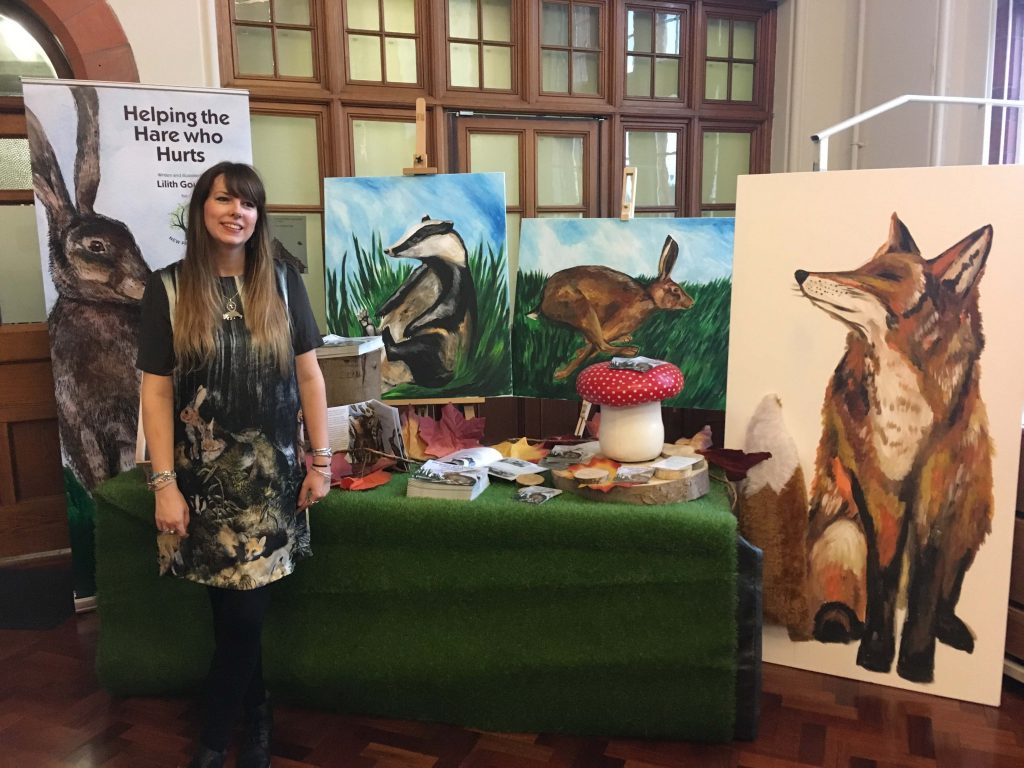
Ms Gough, who lives in a village near Aberystwyth, said art psychotherapy uses art to help patients express themselves.
“Children, young people, adults can kind of express themselves and their emotions and feelings through the medium of art without having to put them into language necessarily,” said Ms Gough.
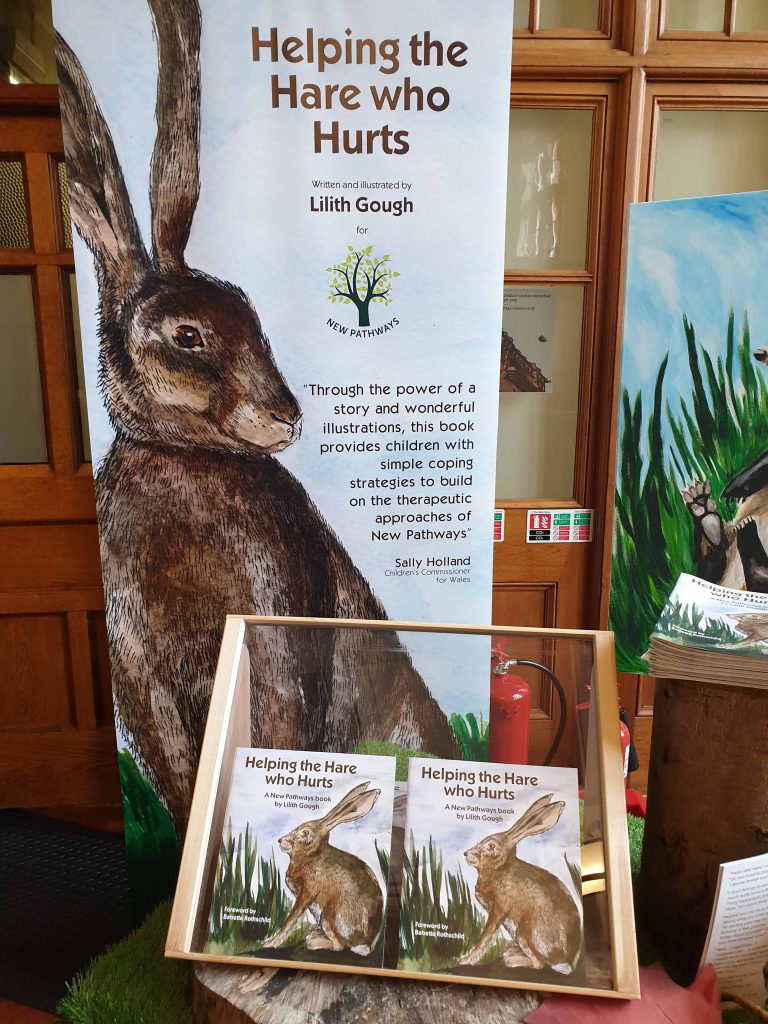
Ms Gough’s work at New Pathways involved creating courses for teenagers and adults to help overcome trauma.
“I was creating these packages for adults and also for teenagers … but we realised there was a huge gap with younger children. To sit and have a PowerPoint or something would not be the right medium (to explain trauma).”
The book was designed for children to sit and read, maybe with a parent or carer to share those ideas.”
“I met with children and young people to show them what the initial stages of the book looked like. And they gave me feedback, some brutally honest feedback as well, like ‘change the ears on this hare’,” said Ms Gough.
“Because I was working with people and children as young as three or five, I felt like I really had a sense of what they needed.
“I was very much coming from an understanding of working with survivors of rape and sexual abuse as well. So, all the way through, it just describes ‘the bad thing’. It never says what the trauma is, which is also important so that it could be any trauma – a traffic accident, sexual abuse, but it could be something else.
Ms Gough said her childhood spent in the woodlands near her home in West Wales influenced the work: “All my life had a very strong connection with nature and woodland creatures.”
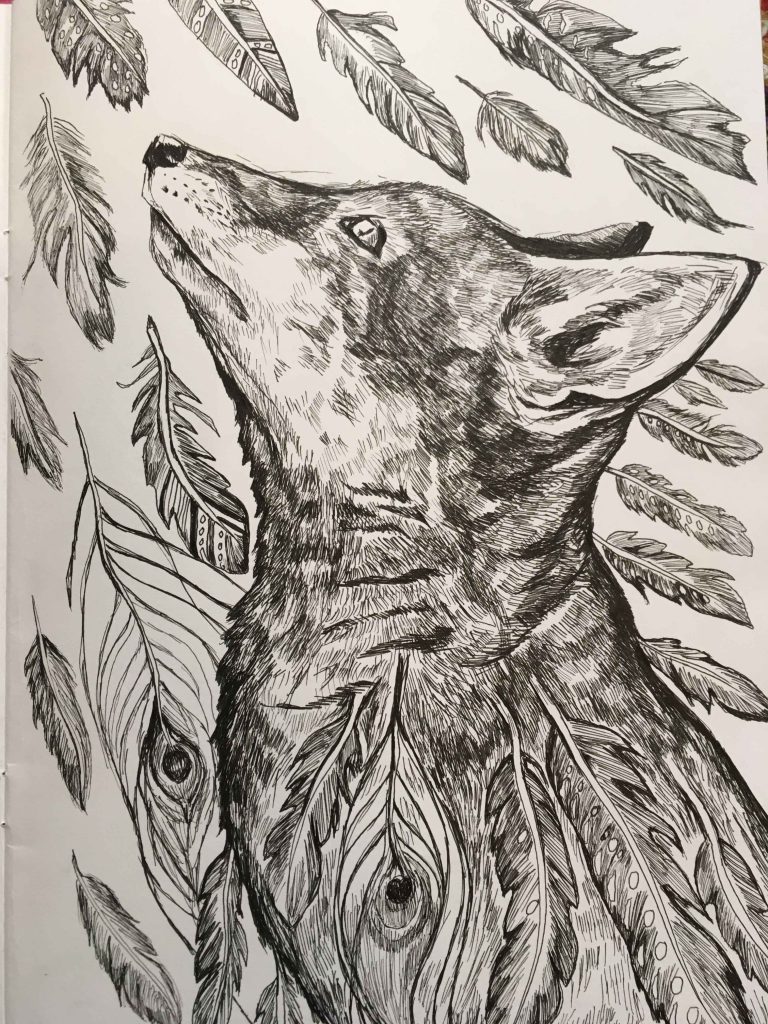
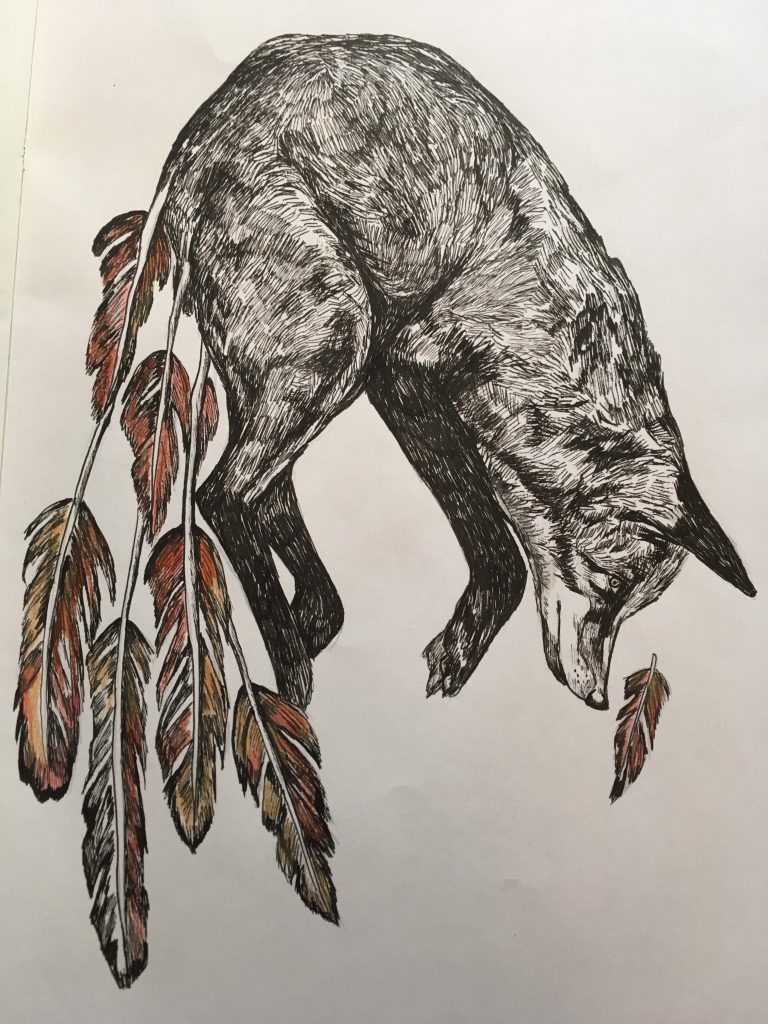
She used nature in the story to make Hare’s experience accessible and inclusive.
“Nature is a helpful tool to explain something to children and young people – rather than saying it through a young person themselves. All the way through the book, Hare is Hare, and is not a gender. It was really important that there was no gender for Hare.
Ms Gough now works at Traumatic Stress Wales. Her work is at a strategic level focusing on a better framework for helping children through trauma.
As a new mother with three master’s degrees and a variety of work commitments, Ms Gough finds it difficult to find time to do her art but she is grateful to New Pathways for the opportunity to make the book.
